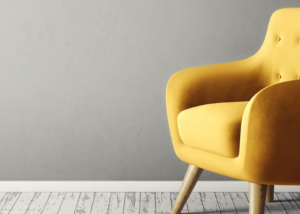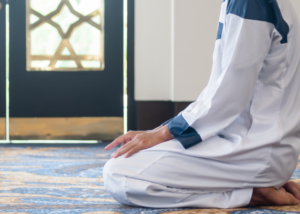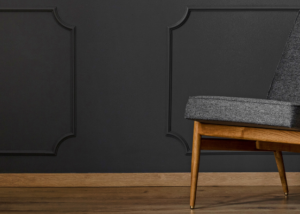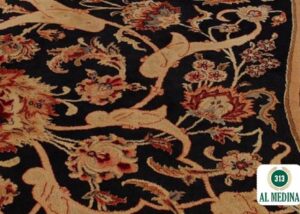Quran
Hadith
Islamic Text
بِسْمِ اللَّهِ الرَّحْمَنِ الرَّحِيمِ
In the Name of Allah Most Merciful Most Kind
Short Answer
No, you cannot pray behind an Imam who sits on a chair. This is invalid. However, the exception to this is if you are also unable to pray normally and must pray on a chair too. In such a case, only the individual in this situation can pray behind an Imam who also sits on a chair.
The Imam is to be followed
إِنَّمَا جُعِلَ الإِمَامُ لِيُؤْتَمَّ بِهِ، فَإِذَا رَكَعَ فَارْكَعُوا، وَإِذَا رَفَعَ فَارْفَعُوا
The Prophet ﷺ said, ‘The Imam is to be followed. So if he bows then bow, and if he rises then rise (from bowing).’ (Sahih al-Bukhari, 1113).
In the blessed Hadith narration above, the Prophet ﷺ is instructing us to follow the Imam. As such, if the Imam is praying on a chair and you are praying normally, then you cannot follow the Imam. This is because his Ruku’ and Sajdah will be different to yours. Therefore, you cannot pray behind an Imam who sits on a chair. As such, the Imam must be someone who can perform Sajdah normally.
Furthermore, an Imam who sits on a chair does not actually perform Sajdah (prostration). Rather, he indicates it. This is called Imaa in Arabic. However, a person can only pray through Imaa if there is a necessity. As otherwise, his prayer will be invalid. Consequently, such a person cannot lead others in prayer unless they are praying through Imaa too.
Hanafi Imams
وَلَا يُصَلِّي الَّذِي يَرْكَعُ وَيَسْجُدُ خَلْفَ الْمُومِئِ. (مختصر القدوري)
The one who performs Ruku and Sajdah cannot pray behind the one who is indicating (Imaa). (Imam Abu al-Husayn al-Quduri, Mukhtasar al-Quduri).
وَلَا يَجُوزُ اقْتِدَاءُ مَنْ يَرْكَعُ وَيَسْجُدُ بِالْمُومِئِ عِنْدَ أَصْحَابِنَا الثَّلَاثَةِ. (بدائع الصنائع في ترتيب الشرائع)
It is not permissible for the one who performs Ruku and Sajdah to follow the one who prays with Imaa. This is according to our three companions (Imams Abu Hanifah, Abu Yusuf, and Muhammad al-Shaybani). (Imam Abu Bakr al-Kaasaani, Badai al-Sanaai).
وَلَا يُصَلِّي الَّذِي يَرْكَعُ وَيَسْجُدُ خَلْفَ الْمُومِئِ. (الهداية في شرح بداية المبتدي)
The one who performs Ruku and Sajdah cannot pray behind the one who is indicating (Imaa). (Imam Abu al-Hassan al-Marghinani, al-Hidayah).
In the Nusoos (texts) above, some of the leading scholars of the Hanafi Madhab clarify that a person praying with indication cannot lead someone who is able to perform Ruku and Sajdah. Praying with indication is referred to as Imaa. An Imam who sits on a chair and leads the prayer is carrying out Imaa. Therefore, he cannot lead those who pray normally.
Weaker state
In the Nass below, Imam al-Ayni explains that the person leading the prayer cannot be in a weaker position that the one following. However, a person praying with Imaa is in a weaker position. Therefore, prayer behind an Imam who sits on a chair is invalid.
حال الراكع والساجد أقوى فلا يجوز بناؤه على الضعيف. (البناية شرح الهداية)
The condition of the one performing Ruku and Sajdah is stronger. Therefore, it is not permissible to base it upon the weak. (Imam Badr al-Deen al-Ayni, al-Binayah).
Imam sitting in the floor can lead
If an Imam is sitting on the floor and performing Sajdah normally, then he is not considered to be praying with Imaa. Therefore, he can lead those who are standing behind him. There is an explicit Hadith permitting this method. Despite that there is no Hadith permitting a person of Imaa leading people who are standing.
وَيَصِحُّ اقْتِدَاءُ الْقَائِمِ بِالْقَاعِدِ الَّذِي يَرْكَعُ وَيَسْجُدُ لَا اقْتِدَاءُ الرَّاكِعِ وَالسَّاجِدِ بِالْمُومِئِ. (الفتاوى الهندية)
It is valid for the one who is standing to follow the one who is sitting but performs Ruku and Sajdah. It is not (valid) for the one who performs Ruku and Sajdah to follow the one who is indicating (Imaa). (al-Fatawaa al-Hindiyah).
Conclusion
The only person an Imam praying with Imaa can lead is someone else who is praying with Imaa. As a result, an Imam who sits on a chair whilst praying can lead a follower who sits on a chair. However, there is much more detail to these Masail that should be studied in Fiqh class alongside other common misconceptions.
It is incredibly important for Muslims to study Fiqh. This means to study Islamic law or jurisprudence. If a person does not study the science of Fiqh and relies on Q and A, then he will not have the full picture. Furthermore, there is no substitute to studying, which is why our blessed Prophet ﷺ obliged it.
And Allah Most High Knows Best.
–Answered by Shaykh Noorud-deen Rashid (19.03.24)






